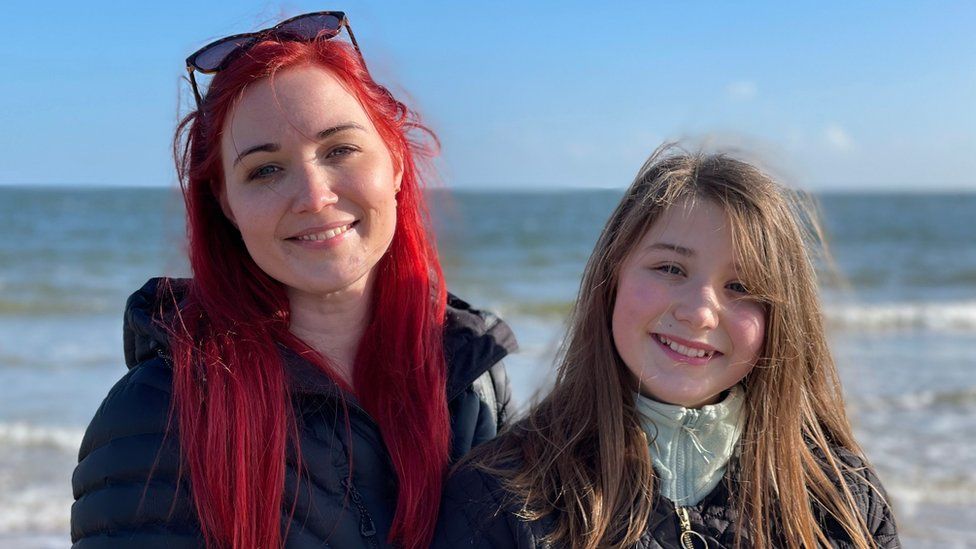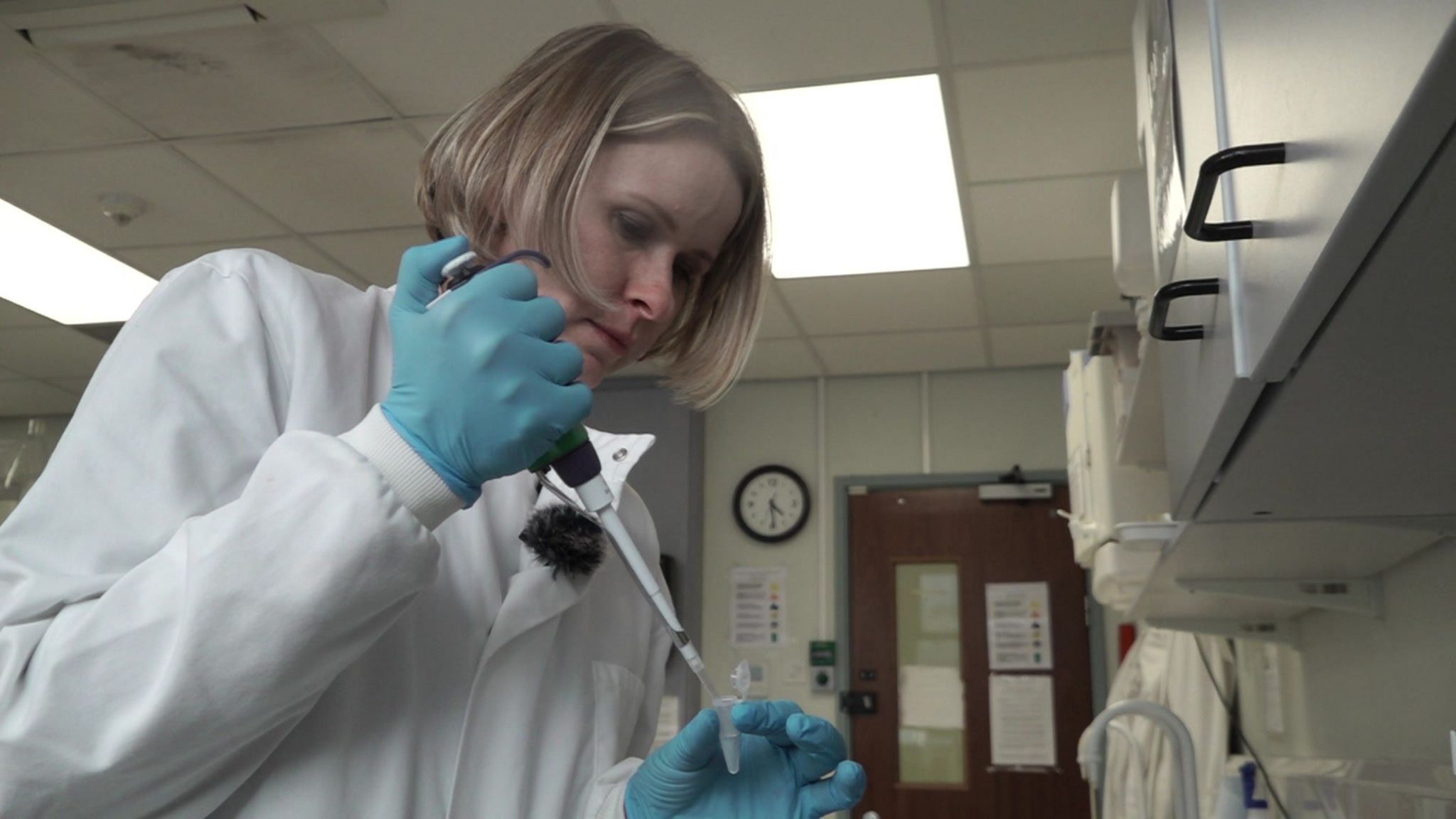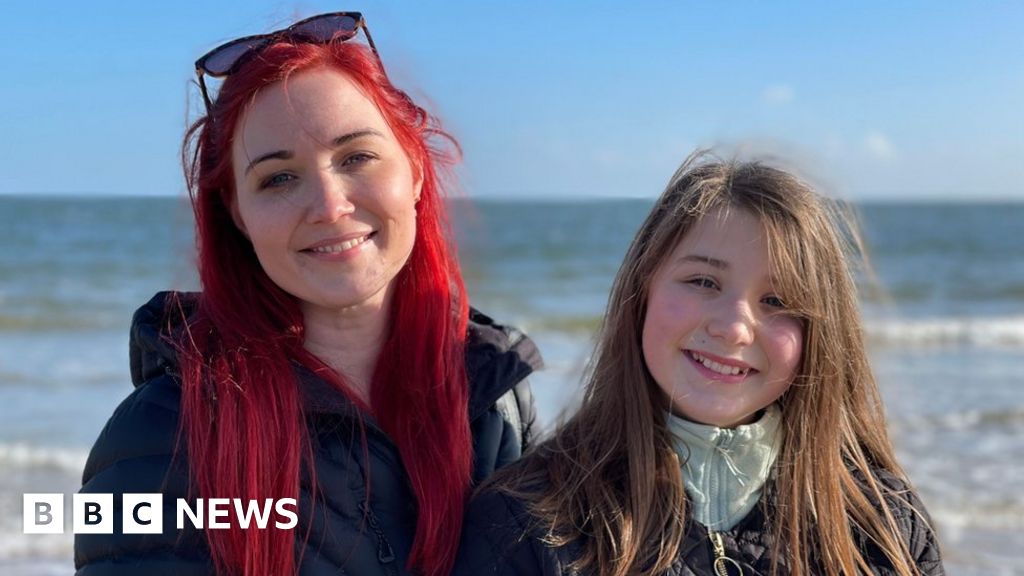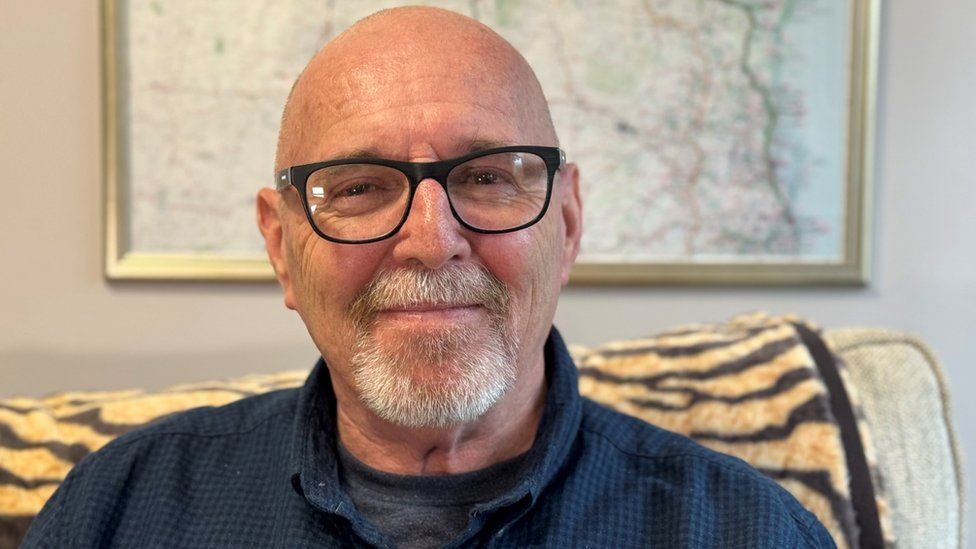
Thousands of patients in England with suspected lung cancer are being offered a blood test which can show if they can get early access to targeted therapies.
The test looks for genetic variations to aid treatment decisions.
Some tumours can be treated with pills rather than standard chemotherapy, often meaning fewer side effects.
Lung cancer patient Kat Robinson, 33, was able to take tablets at home rather get treatment in hospital, giving her more precious time with her daughter.
Kat says she has been told she has at least one year to live, but perhaps several more.
She is among 2,000 patients who had already had the test when they presented with cancer symptoms.
A further 10,000 patients with suspected lung cancer will be offered it across 80 NHS Trusts in England over the next year.
Kat’s symptoms began with a headache which wouldn’t go away. After two weeks, her sister persuaded her to see a doctor.
“I thought it was a migraine, but my GP said you need to go to hospital right away. I immediately had an MRI and CT, and within two hours of stepping into the hospital I was talking to an oncology doctor.
“They found seven tumours in my brain, which were causing my headaches, but further investigation found that my primary cancer was in my lung, where I have three tumours.”
The cancer had also spread to Kat’s lymph nodes and her skull.
She was offered a blood test, also described as a “liquid biopsy” which looks for fragments of DNA which have broken off tumours and are in the bloodstream.
This so-called “circulating tumour DNA” revealed that Kat’s cancer growth was being driven by a mutation in the ALK gene.
Although uncommon, the mutation is often seen in younger patients with non-small cell lung cancer who, like Kat, are non-smokers.
It meant the best treatment for her was a targeted drug called brigatinib.
“They were preparing me for radiotherapy and then chemotherapy, but instead I was able to go on this daily tablet.” She says she has had very few side effects, apart from nausea.
Kat, from Dorset, decided to be completely candid with her 11-year-old daughter Paige about her cancer: “We talk about pretty much everything, and she has just tackled it head-on.”
Paige says that before the diagnosis, her mother was very focused on her job as an accountant, but now she always has time for her.
She says: “It has taught me that family is all that matters. I have learned how to cook loads of meals, and we are trying to build as many memories as we can.”
Kat says when brigatinib stops working, doctors have said there is another targeted drug she can take before requiring radiotherapy and chemotherapy.
The family has set up a gofundme page to help raise £10,000 so that Kat can take her daughter to Disney World in Florida.
Brigatinib has a list price of more than £5,000 a month, but the NHS has negotiated a confidential discount with the manufacturer Takeda.
Patient blood tests from across England will be analysed in a laboratory at the Royal Marsden Hospital in Sutton, Surrey, with the aim of turning around the results within 14 days.
Prof Sanjay Popat, consultant clinical oncologist at the Marsden, says the use of the blood test is a “superb idea” and means patients have faster access to the right treatment for their cancer.
He says brigatinib is one of eight targeted treatments for non-small cell lung cancer, which accounts for at least 80% of lung cancer cases. All these drugs are tablets which can be taken at home by patients.
“These tablets are highly effective and their side-effect profile is very good. By contrast, chemotherapy is tough – it makes people tired, and can cause nausea and hair loss.”
He says the longer term outlook for patients is improving.
“In the pre-targeted drugs era patients with widespread non-small cell lung cancer had an average survival of around a year or even less. We are now seeing survival measured in years.”
Prof Popat says the use of blood tests or ‘liquid biopsies’ is likely to broaden to breast cancer and cancers in children.
Peter Johnson, National Clinical Director for Cancer at NHS England, says: “The NHS has shown it can lead the way on innovation in cancer diagnosis and treatment, and this pilot is another example of our commitment to getting patients cutting-edge treatments and therapies to improve outcomes, giving people facing lung cancer more precious time with loved ones.”
Related Topics
-
-
25 April 2023

-


